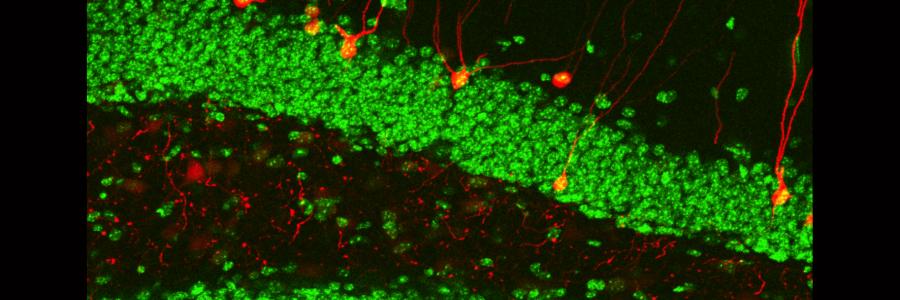Learning and Memory
MCN teams aim to understand the process of learning and memory.

MCN teams aim to understand the process of learning and memory.

In recent years genetics studies have uncovered many genes associated to risk for various brain disorders. This brings the challenge to identify the function of a substantial number of these genes in a neuronal context. In particular, robust standardized screening tools are necessary for cellular gene function analysis.*
*
*
High-content screening (HCS), also known as Cellomics, is a microscopy-based method to study gene function or alterations in cellular phenotypes in response to experimental manipulation or treatment.
Dedicated HCS instruments, such as the Cellomics ArrayScan VTI and the Opera LX used by us, allow for high-throughput analysis of cells in 96- or 384-well plates and support unbiased and automated image acquisition and analysis. HCS is therefore particularly useful for high-throughput compound and RNAi screens.*
*
*
To study neurodevelopmental phenotypes we combine HCS with cultured primary embryonic rodent neurons or iPSC-derived human neurons. We perform both RNAi screens and compound screens and have developed a dedicated image analysis pipeline to extract up to 40 HCS parameters associated with neuronal network development and connectivity.